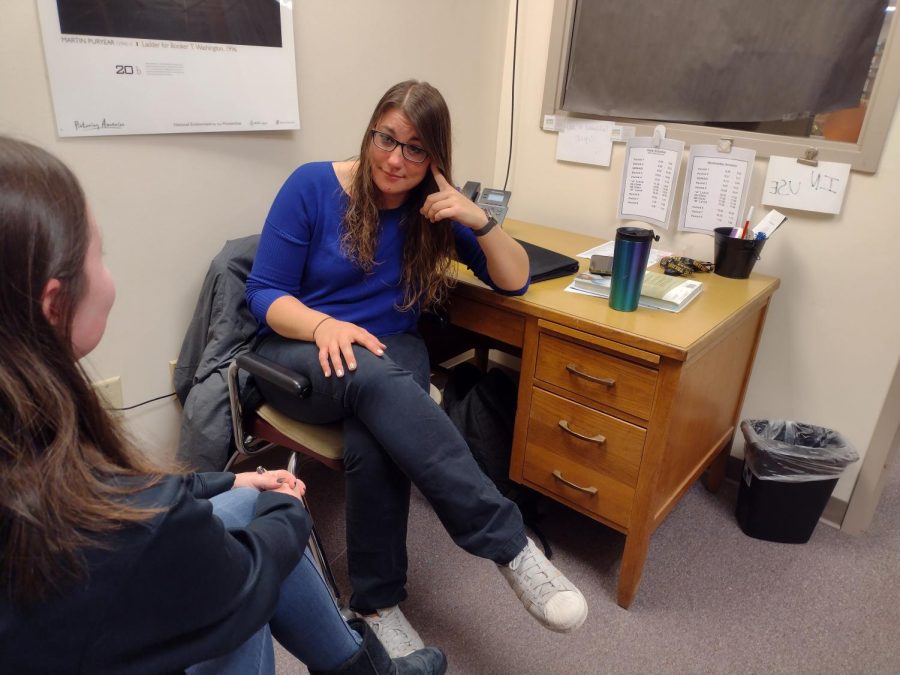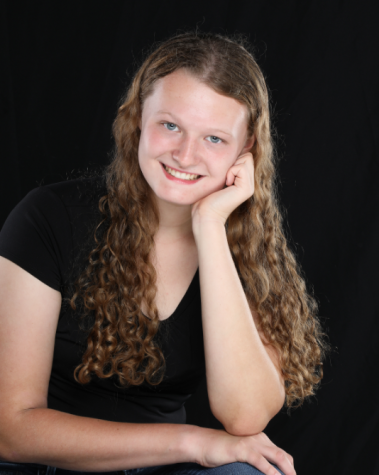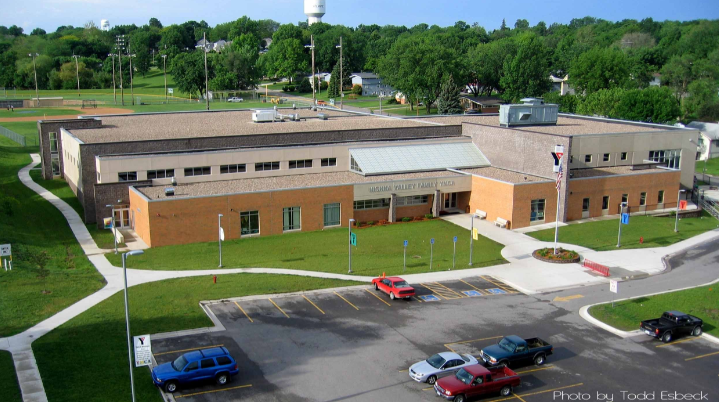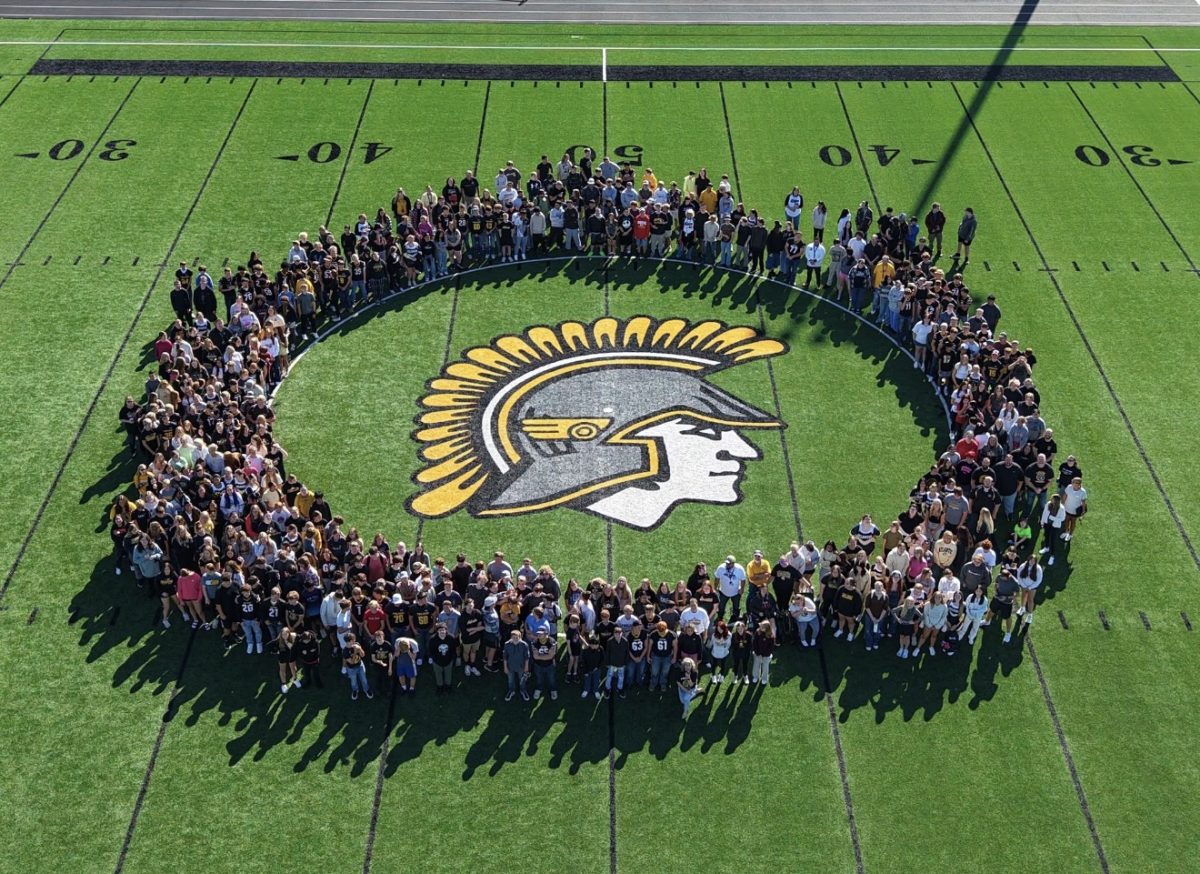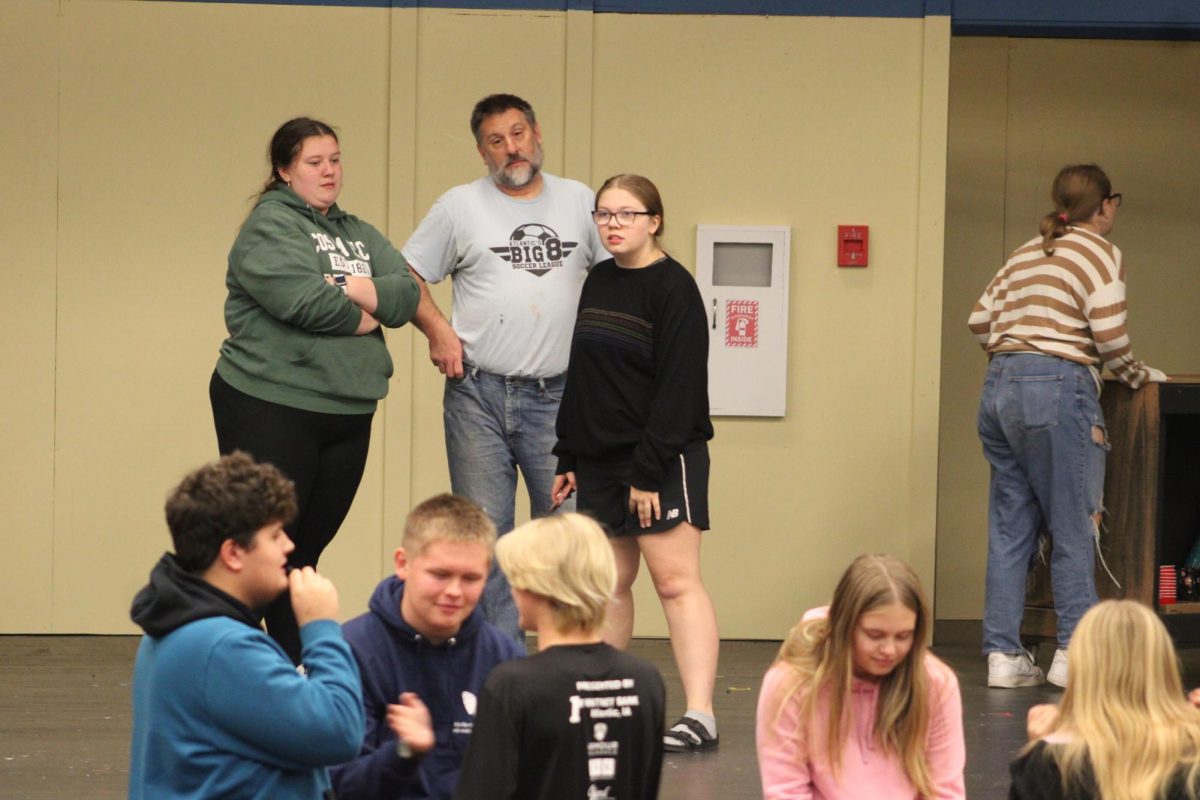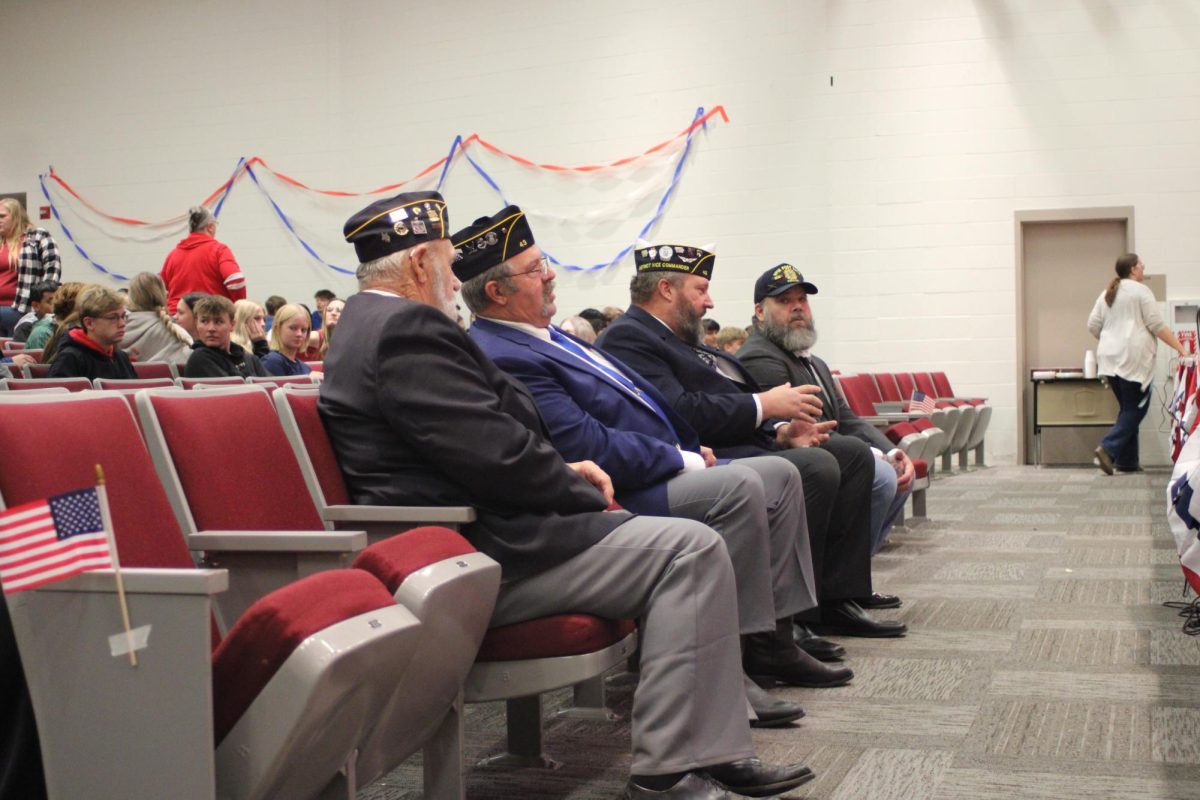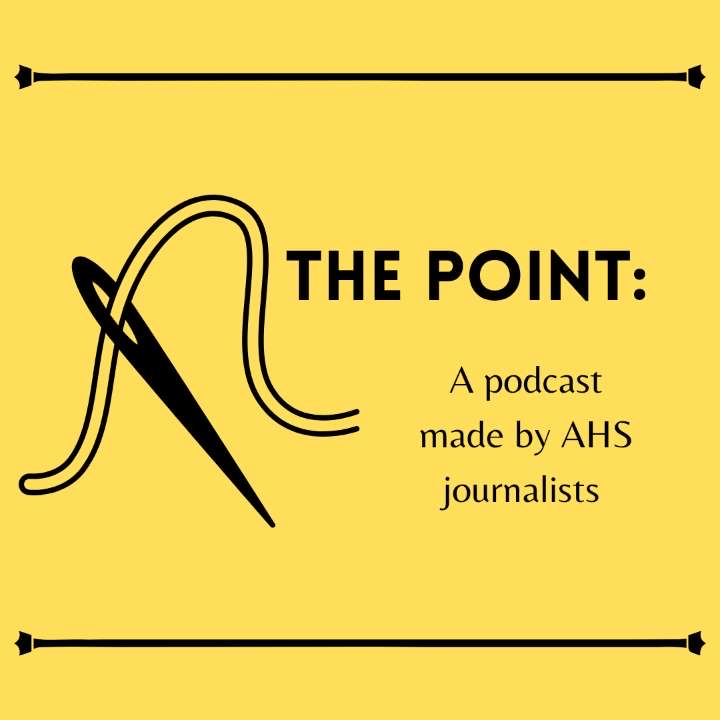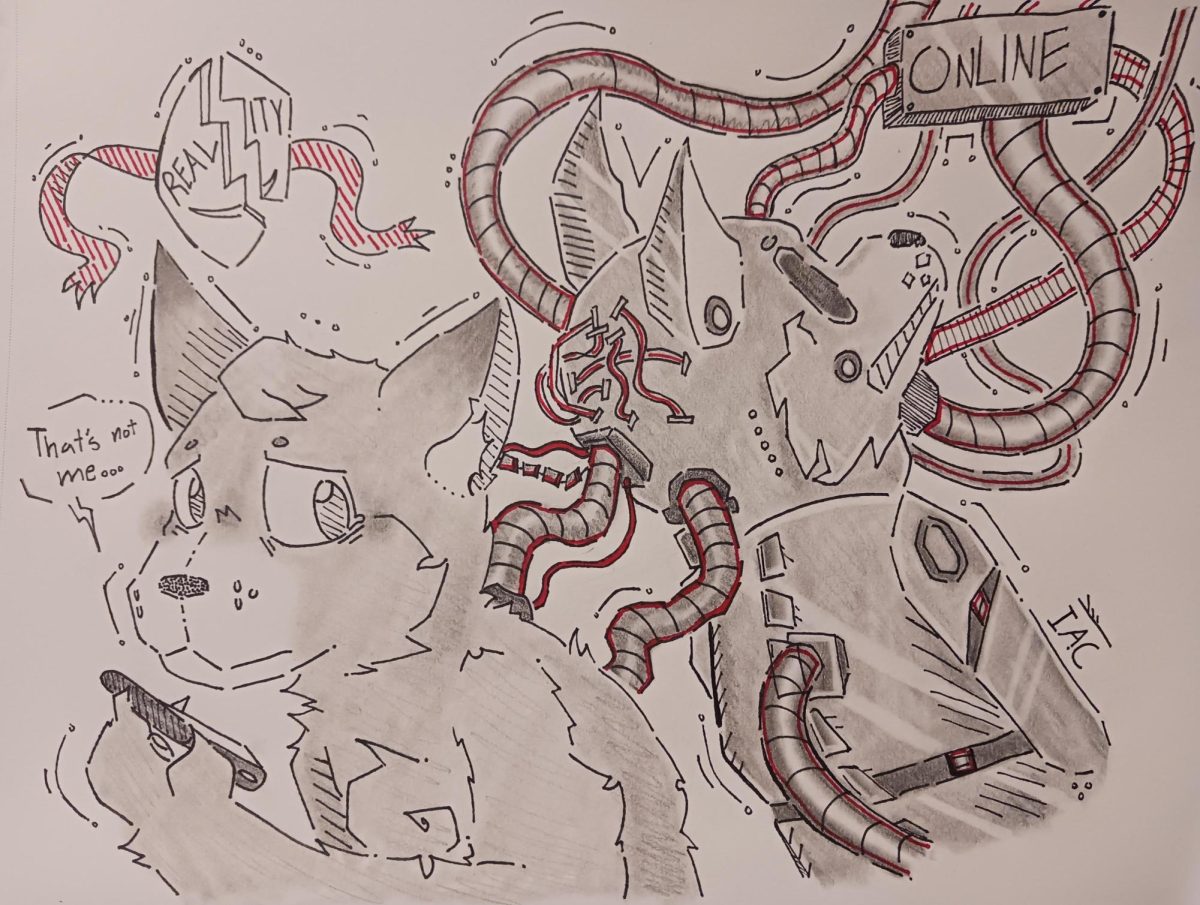To Grieve, Or Not To Grieve
AHS students share their experiences on Children’s Grief Awareness Day. As grief struck many students and their families last year, AHS worked to improve mental health resources.
High School and Link Center Mental Health Professional Melanie Fell consoles a grieving student. Students can go to Fell’s AO for group counseling or contact her for a one-on-one counseling session. (Photo Illustration)
November 17, 2022
“Grief is not stages or steps; it’s rather states of grief. You can go through different emotions. You can go through the bargaining and the anger at the same time or six months apart, and you can go back to it. No one is really done grieving, either,” sophomore J. Molina said of their grief recovery process. Molina, along with many of their peers at AHS, has had to face the death of a parent while in high school.
“It is not clear exactly how many young people are affected by the death of an immediate family member,” states a National Library of Medicine article. “[Children’s Psychological Health Center medical director, Gilbert] Kliman estimates that five percent of children in the United States—1.5 million—lose one or both parents by age 15; others suggest that the proportion is substantially higher in lower socioeconomic groups.”
Regardless of the exact number, co-chair of the Global Reference Group on Children Affected by COVID-19 and Crisis, Susan Hillis, calls the increasingly high numbers of children facing the loss of a parent, especially due to the COVID-19 pandemic, “heartbreaking and disturbing” in an article from NPR. In her research, she discovered an increase in childhood bereavement cases from previous years. “Part of the increases are because we just have more accurate death data on which to model our estimates. And of course, the other aspect of the increases is that deaths have continued,” she said. Regardless of how or why so many young people are facing loss, Hillis sees the negative impacts of grief on young people. “It increases the risk of mental health problems, suicide, prolonged grief complications, sexual exploitation and abuse, even physical abuse of children,” she said.
Molina experienced the negative impacts of grief firsthand when their father passed away in December of their freshman year. “I’d never wish for anyone to lose someone like that because of how much it’s torn me up,” they said.
In Molina’s case, the accident that led to their father’s passing occurred in the aftermath of another loss. “My grandpa had just died that week, and so my mom and I were preparing for that visitation when she pulled me into my grandma’s room and said, ‘your dad just got in an accident at work,’” they said. “What happened was that it was windy [and] stormy. No one should have been working then, and my dad was about fifty, so he especially shouldn’t have been working, but he had to… we think he was trying to rush his work so that he could go to my grandpa’s visitation because my dad and my grandpa were very close.” A gust of wind knocked him off of a ladder, and he sustained “brain-trauma to the back of the head.” Multiple support beams fell onto him.
“As soon as I found that out, my heart just sunk. I was trying to be as hopeful as I could, [thinking] ‘something like this just can’t happen to someone like him. [He] has always done good. He’s the best person I’ve ever met, [and] has never done any harm. Something like that could never happen to him.’” The next week, he was pronounced dead.
According to an article about Children’s Grief Awareness Day (see sidebar), “Children who have experienced the death of someone important to them often feel like their struggles are invisible to those around them. These children need advocates, letting all know that the death of someone close is the beginning of many weeks, months and years of finding ways to go on without that special person in their lives, with that person-shaped hole in their hearts… These children can be helped to not feel so alone.”
In Molina’s case, help came in the form of the school offering them grief counseling with Atlantic High School and Link Center mental health professional Melanie Fell. “I wasn’t sure how it worked for me… but I tried to give it a chance.” They found that the grief counseling, as well as the fact that “the school also gave my brother and [me] a few days off and exempted us from missing work at the end of the semester since it was December,” helped them the most. “As for teachers,” they said, “some of them have been [supportive] as well. For example, [journalism teacher Allison] Berryhill has given me mental health resources, and that’s also been very helpful.”
Giving students time off and exempting them from some homework obligations is standard practice, explained Fell, the grief counselor who met with Molina. “Last year I did a grief group, and they could sign up for it in AO, or their counselor could sign them up for it,” Fell said. “It’s kind of nice that I’m an outsider person, so they don’t feel like somebody is evaluating them. Not that anyone is doing that, but someone who doesn’t grade them is available to come and talk to. There’s many types of loss that happen. They don’t have to do homework for me. They come in [for group counseling], or they can come in one-on-one and we can do all kinds of things. They can go through the exact process of the loss [that] happened, anniversary dates, preparing for anniversary dates, preparing for all these big events that will come up that happen every year. We can’t stop it, so just being prepared for when all that stuff comes. And then we do worksheets for coping, stuff for remembrance, [and] celebrating birthdays.”
However, not all grieving students have experienced such positive support from the school and their classmates. Senior Kaylee Brooks’ father passed away “when I was thirteen and in seventh grade.” They said, “I didn’t have very many friends in school. Nobody really liked me, no one would talk to me. My dad was my one and only real friend.” After he passed, Brooks was “medically delusional for a little over a year after.”
“The first year after what happened, I remember I felt really crappy, and I genuinely did not want to be alive, but I don’t remember exactly the reasons why. It’s all just kind of a blur.” Brooks found solace in math teacher Corey Bartz’s classroom. “He was one of the only teachers who actually did stuff for me,” they said. “He allowed me to come to his room and cry whenever I needed it. But no one else [did]; it was just a Mr. Bartz thing.” They recalled, “I’ve gone to counselors many times in the last four and a half years. Nothing. I have basically begged the school for help. Nothing. So I kind of just got to the point where I’m done asking, and I’m done trying to get help from them.”
Brooks’ experience was made worse due to the reaction of their peers. “I would say 95 percent of my grade at the time was just making fun of me,” they said. “[Classmates] made fun of me for having to watch him die; they made fun of me for not having a dad anymore. [Somebody] ripped my sweatshirt trying to shove me into a locker and saw that I had been harming myself and made fun of me more because of that. And the school did nothing about it; I reported it multiple times. [The school] said that they would talk to [the student], but the most they did was tell them not to do it again. The school doesn’t care. They don’t protect the students, they do not care about us. Specific teachers might, but the school does not.”
In the end, a school and community’s reaction to a student’s loss can help define their grieving process. Molina found support from the school and their friends. They said, “I want people to know that there are people who care for you more than you think, and there are people who are there to support you more than you realize.” As Fell said, “I think peer support is really the most helpful thing for [grief].”
Brooks, however, said that “the school needs to step it up” in regard to their methods of dealing with grieving students.
As the number of youth whose parents have died continues to increase, Fell said, “I imagine we will do more group-type things. Ideally, it would be nice to have mental health, and just any kind of loss, coping things built into regular curriculum… I feel like we will just adjust as it goes, I guess.” She wants students to know they can come to her for help. “I’m hoping more people will see me and be like ‘oh, I can sign up for you for AO,’ because they can. If [students] have stuff that you would like to see, then I can try to do some of those and have you guys sign up.”


